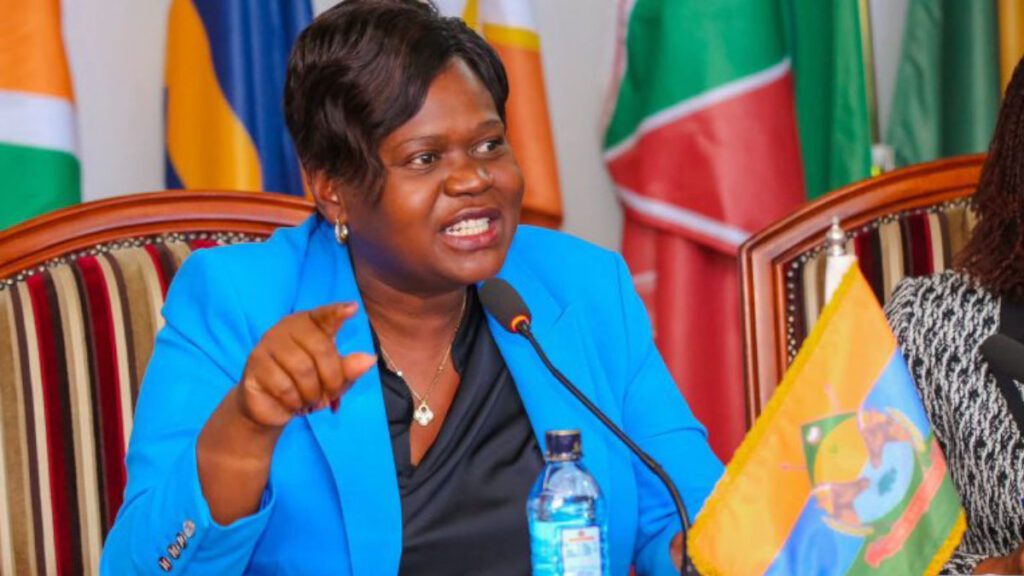Homa Bay Governor Gladys Wanga has lauded the professionalism and strength of Controller of Budget Margaret Nyakang’o, while cautioning that the oversight office may be veering beyond its constitutional boundaries in monitoring county budget implementation.
Speaking during an interview on a local TV station on Thursday, July 17, 2025, Wanga defended Nyakang’o’s qualifications and her critical role in safeguarding public finances, but raised concerns about the interpretation of oversight responsibilities.
“She is a strong, very, very strong woman, competent. We approved her in the National Assembly when I was there,” Wanga recalled, referencing Nyakang’o’s 2019 appointment to succeed former Controller Agnes Odhiambo.
Oversight vs. Auditing
While reaffirming that Nyakang’o “knows what she is doing,” Governor Wanga emphasized the need for clear separation of constitutional roles between the Controller of Budget and the Auditor-General.
“The Controller of Budget cannot be the Auditor and the Controller at the same time,” she said.
Wanga clarified that budget oversight should involve ensuring that counties are spending within approved allocations—not second-guessing expenditures after they have been committed and vetted.
“Oversight of implementation means asking: Are you spending as you stated? If we said salaries are KSh200 million, are we spending that amount as approved?”
She argued that when the Controller questions the legitimacy of a county function—like bursaries—it should be done during budget approval, not midway through the fiscal year.
“If she feels bursaries are not a county function, she should tell us at the point of submitting the budget—not when we’re trying to draw the money six months later.”
Constitutional Process and Public Participation
Governor Wanga expressed frustration with post-approval interruptions, noting that county budgets undergo rigorous public and legislative scrutiny before implementation.
“I go to the people, we hold public participation forums. Then we take it to the assembly, and more public engagement follows. It’s debated, approved, and I assent to it. That’s the legal process.”
She said the Controller’s move to block expenditure based on a difference of opinion—without audit findings—disrupts this constitutional chain.
“If I use the money, the Auditor General will flag it. The matter will go to the Senate, where EACC, DCI, and other agencies will take it up. That’s how the law is supposed to work.”
Call for Role Clarity
Wanga concluded her remarks with a call for respect of institutional boundaries among oversight offices to maintain order and accountability.
“Let everybody run in their lane. That’s when we can have order in our governance system,” she asserted.
While acknowledging the Controller’s authority to monitor county spending, she reiterated that auditing and investigation must remain the preserve of other constitutionally established institutions.

